A Multimedia Exploration of the Story of Vulcan, Blending Film, Poetry, Sound, Music, Art and Science
The Cradle of Fire film screening in Cambridge was kindly sponsored by Homerton Changemakers – a groundbreaking future forward initiative that we are proud to have connected with.
Thanks to this association, we were able to access an auditorium space at Homerton College, Cambridge University, and furthermore, to gather informally in the fabulous Griffin Bar at the end of the evening. The multimedia event was well attended, with an interesting crossover audience. This included artists, writers, musicians, and film makers, together with scientists, educators, academics, and members of the public.
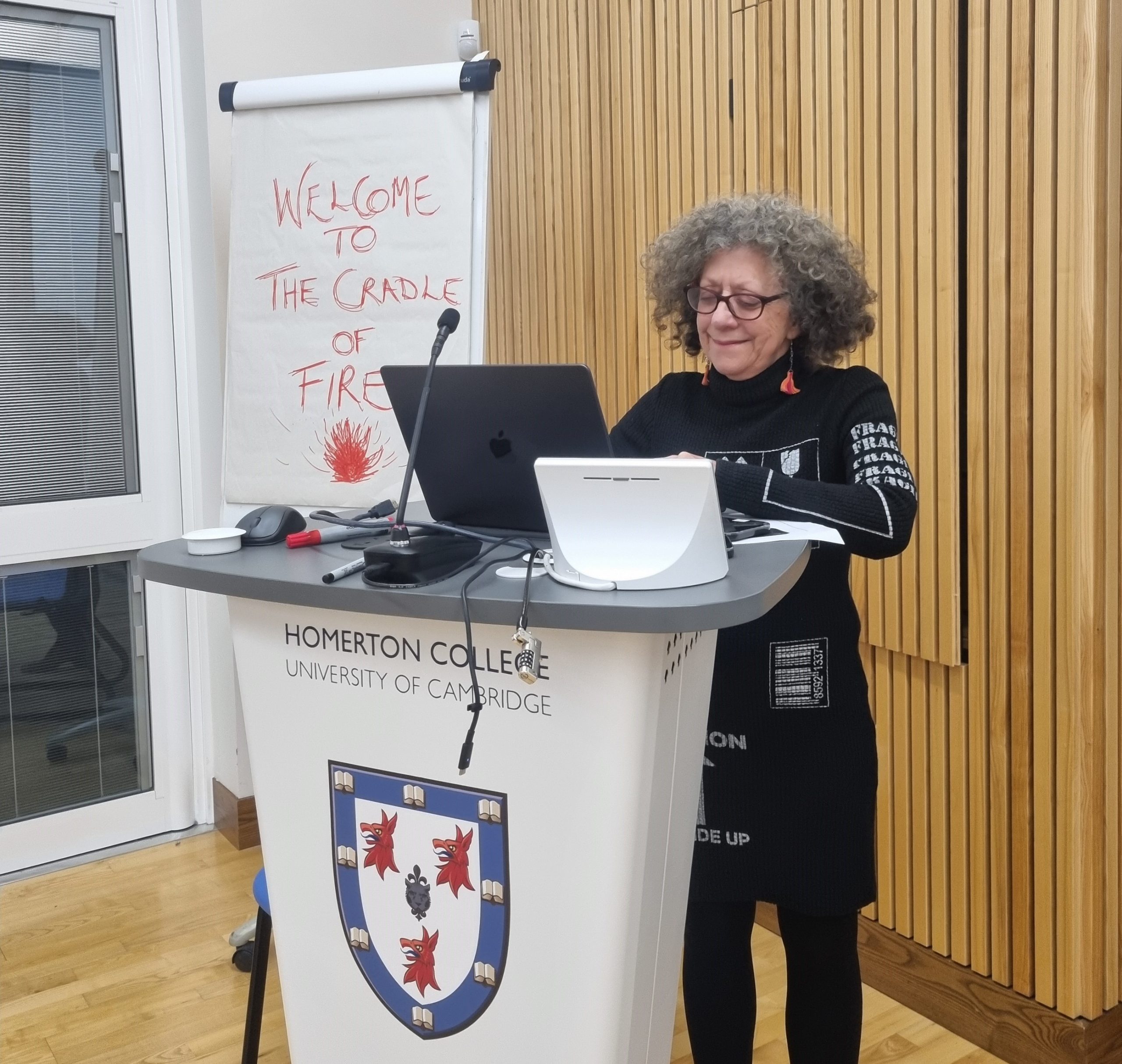
Diana Scarborough preparing for the Cradle of Fire’s multimedia event at Homerton College, Cambridge, © Emma Boden 2024-11-28
Diana started the evening with a welcome introduction, which was followed by the screening. In an informal artist’s talk afterwards, she referenced the key people involved in the Cradle of Fire project as a whole. This led into a discussion relating to various elements in the making of the film. A series of videos offers some highlights. There are links in the text below, or you can head to our YouTube channel to view them all.
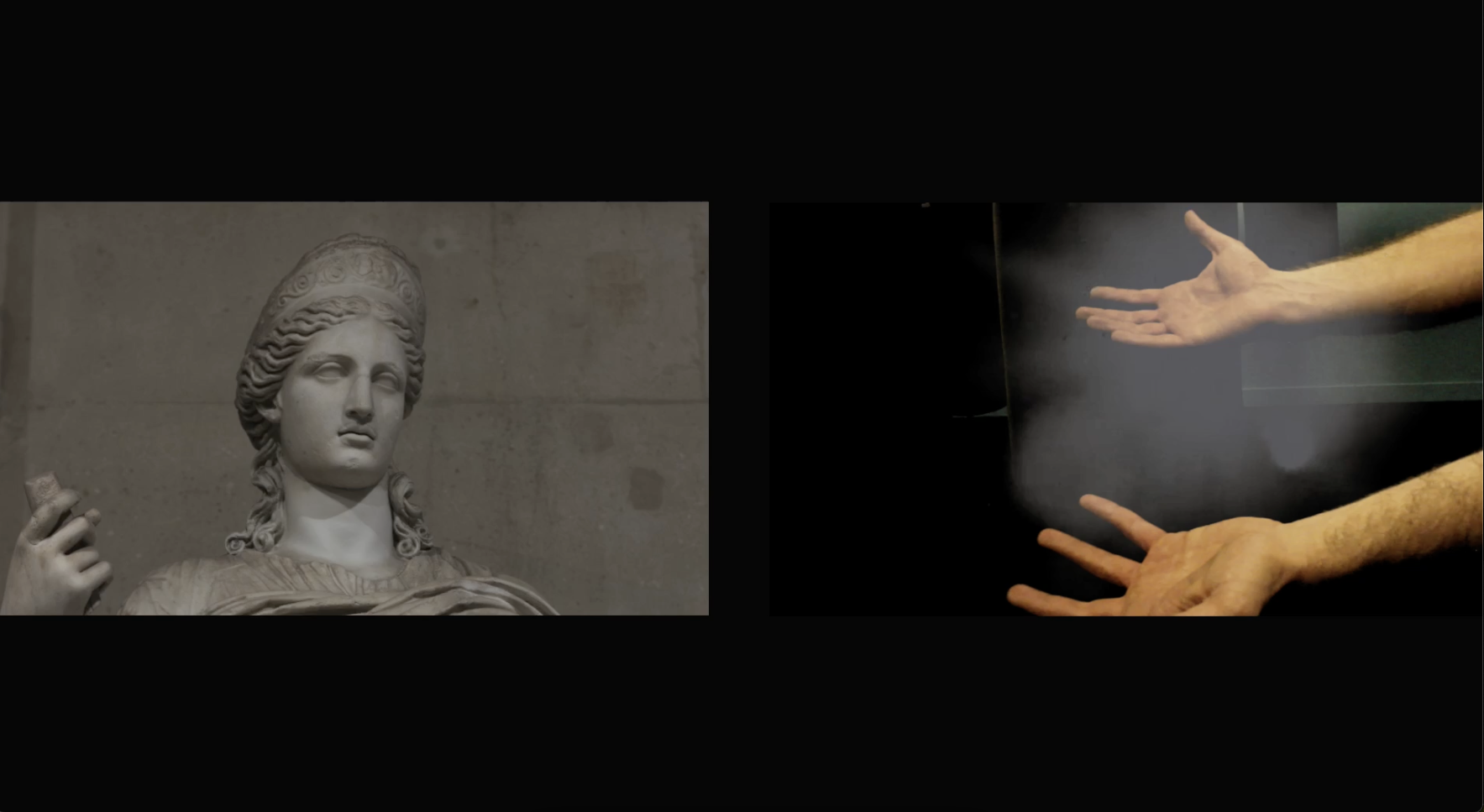
Cradle of Fire Film still double screen with Juno and Vulcan’s hands © Diana Scarborough Screenshot 2024-11-19 at 18.08.01
In the first video, Diana reflects on the editing process, sharing some of the stylistic aspects of her methodology, including the fact that, “I use double screen and I use it as a device.”
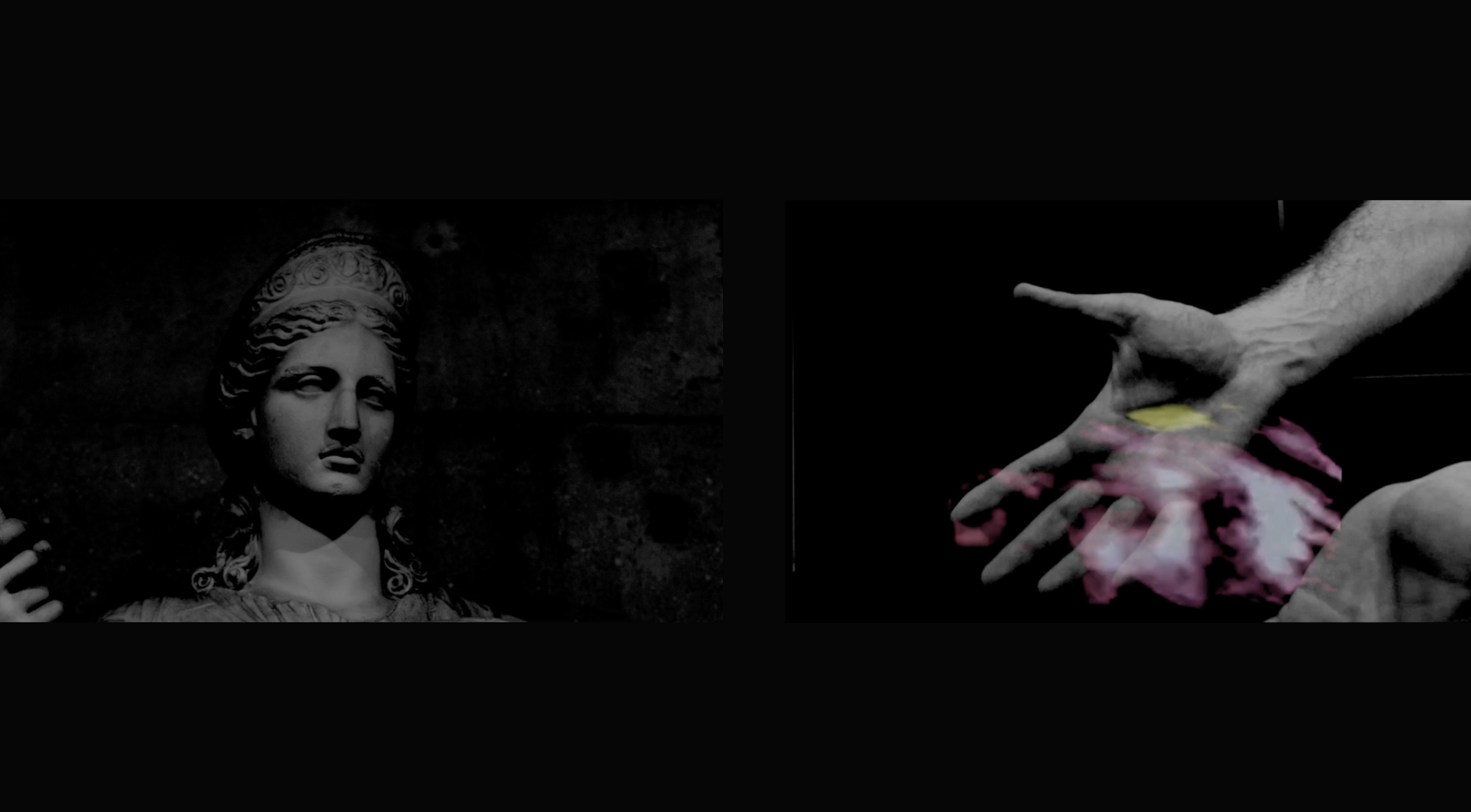
Cradle of Fire film double screen with Juno and Vulcan’s hands layered with stills taken from NASA reentry of Orion spacecraft video on the right side.© Diana Scarborough Screenshot 2024-11-19 at 18.10.54
In the second video, she talks about her approach to the visual aspects and the way in which a “… coherence is made because I’ve layered many videos on top of each other…”. This encompasses what Diana describes as ‘underpainting’, mixing her approach as an artist, like applying layers to a canvas. The edits are fine tuned intuitively, using her technical skills to blend still images and dynamic archival documents with videography, typography and animation.
None of this would be complete without the soundtrack and we’re looking forward to sharing how that evolved in our next blog.
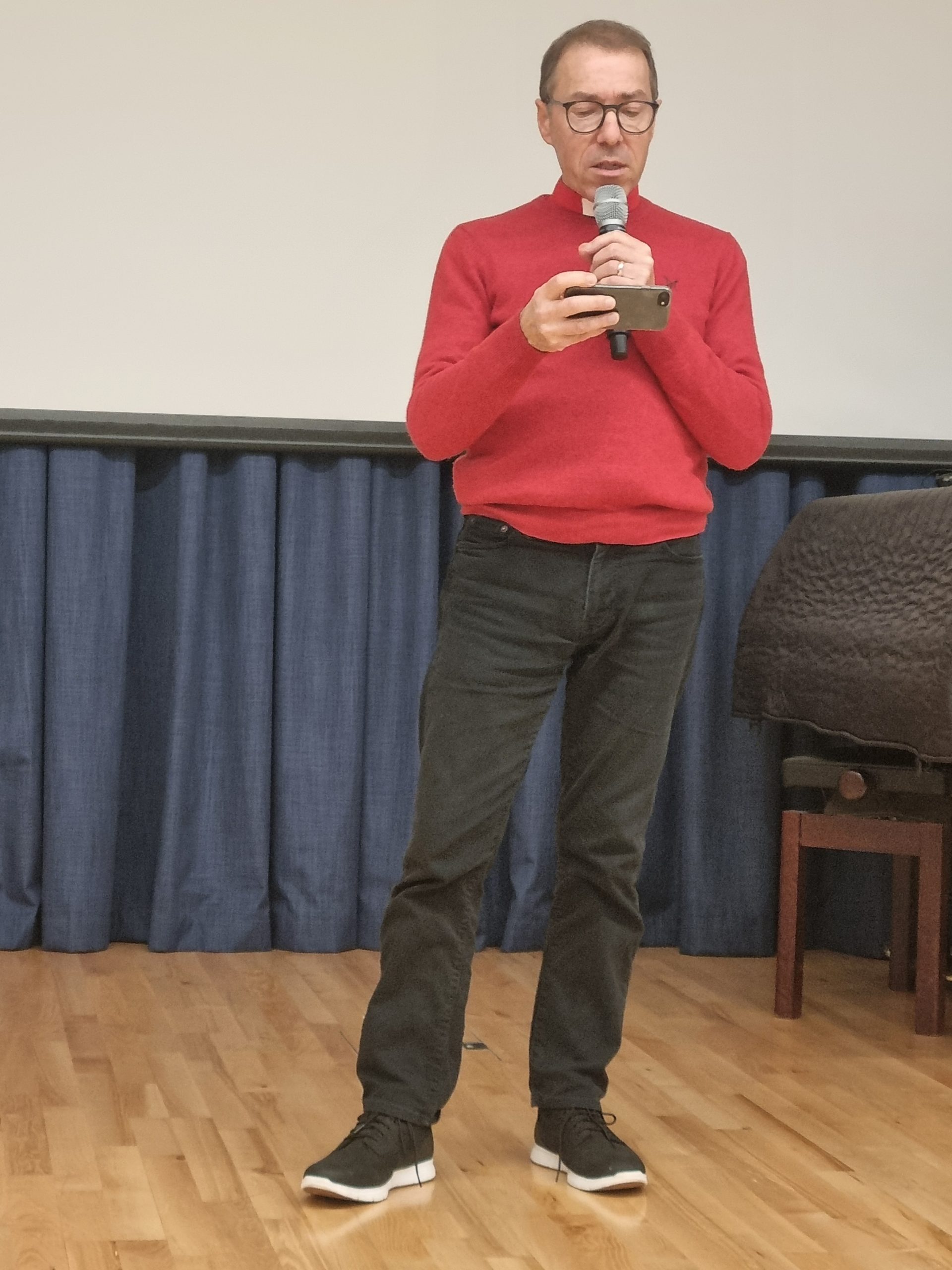
Reverend Captain Peter Allen delivering one of Sheila Thomas’ Monologues at the Cradle of Fire Multimedia event in Cambridge © Emma Boden 2024
Following the screening, the wonderful Rev Capt Peter Allen, Priest in Charge Newport, Widdington, Quendon and Rickling, as well as Coordinating Chaplain Stansted Airport, stepped in with style to read some of the monologues.
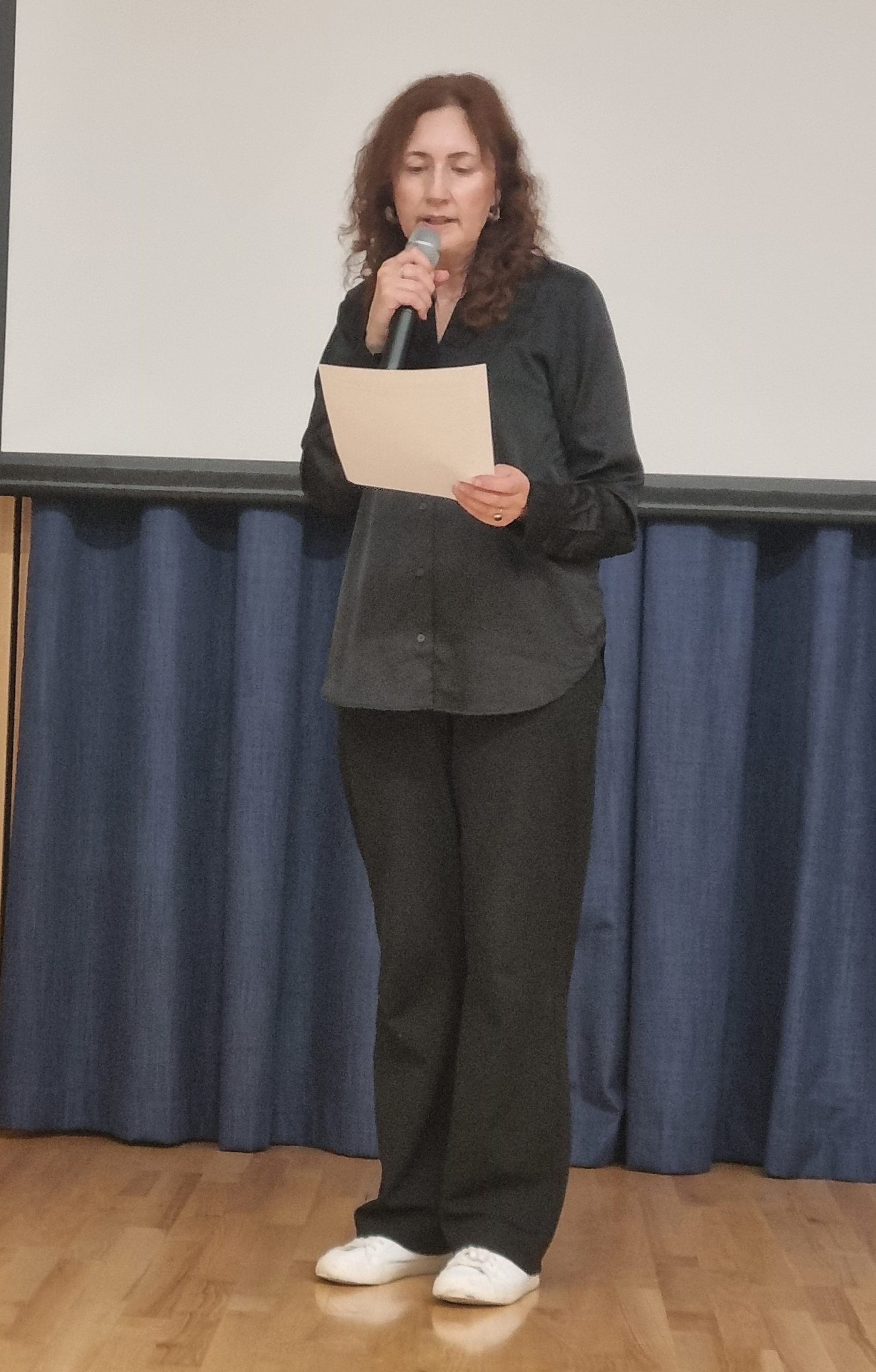
Carolyn Waudby reads some of her Vulcan inspired poetry at the Cradle of Fire multimedia event in Cambridge © Emma Boden 2024
The monologues were followed by further readings, this time poetry, by Carolyn. Many were inspired by her involvement in the Cradle of Fire project, as well as some that featured in the soundtrack. Her research as a journalist led her to discover parallels to the Vulcan myth from other cultures, such as Pele. She was also known as Ka wahine ‘ai hōnua – the woman who devours the earth. This inspired a poem, Pele’s Hair, one of Carolyn’s readings. The Hawaiian goddess is fire and volcanism personified, powering the flow of lava and reshaping the local landscape. A force to be reckoned with, what a match for our Vulcan!
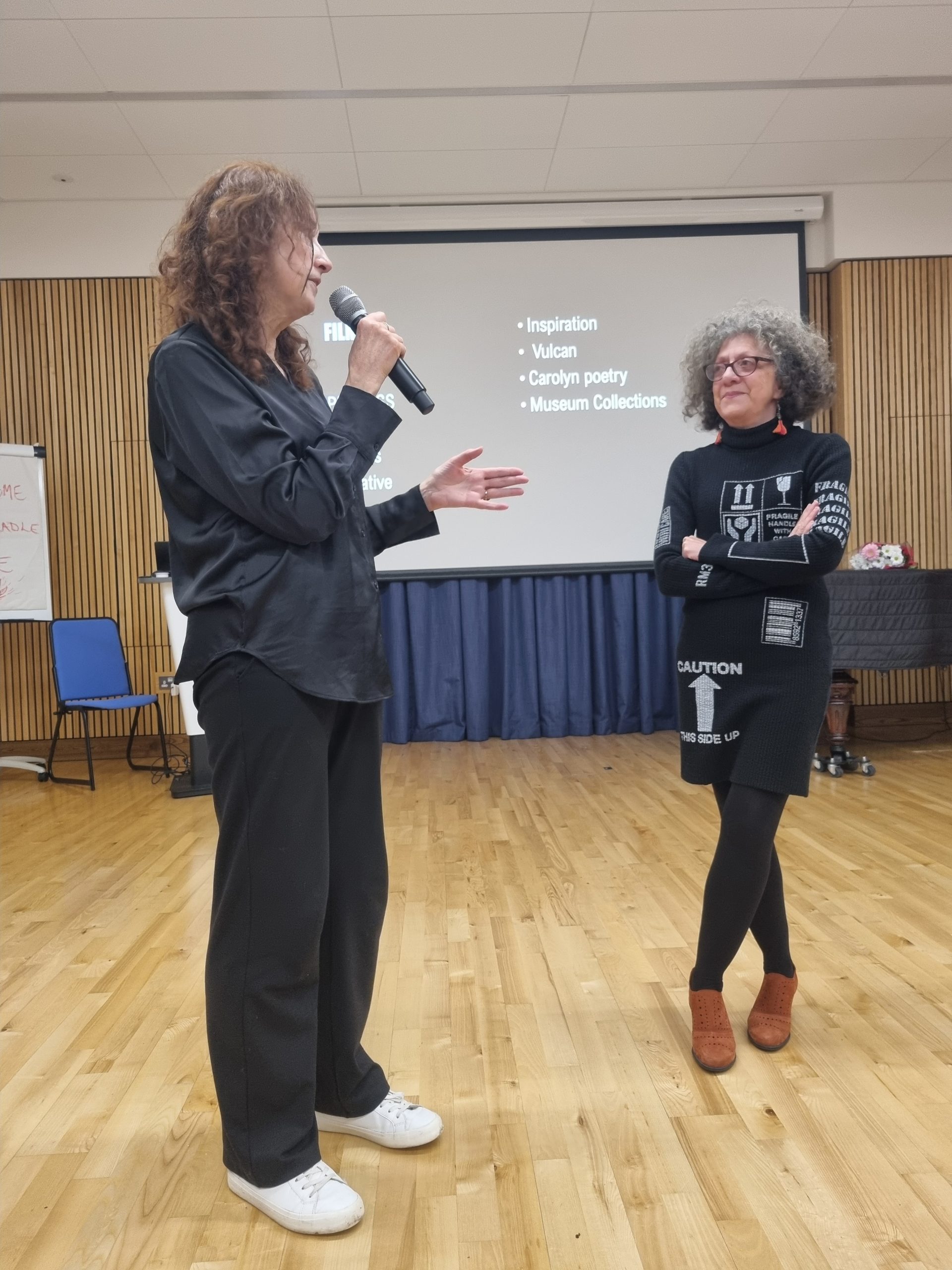
Cradle of Fire’s Carolyn Waudby discussing Vulcan and the Sheffield Museum collections as her inspiration, with Diana Scarborough, at the Cradle of Fire’s multimedia event in Cambridge © Emma Boden 2024
Carolyn also drew on her home town of Sheffield for inspiration, discovering the Hawley Tool Collection at Kelham Island Museum. That generated a poem entitled ‘An A to Z of Planes’. What’s more, these explorations reflected our ongoing interest in working with museums.
One of our key aims has been to view and share multicultural collections in new ways. We wanted to broaden their appeal, and at the same time to investigate niche opportunities amidst museums’ more unusual artefacts. The idea was to maximise public engagement and participation.
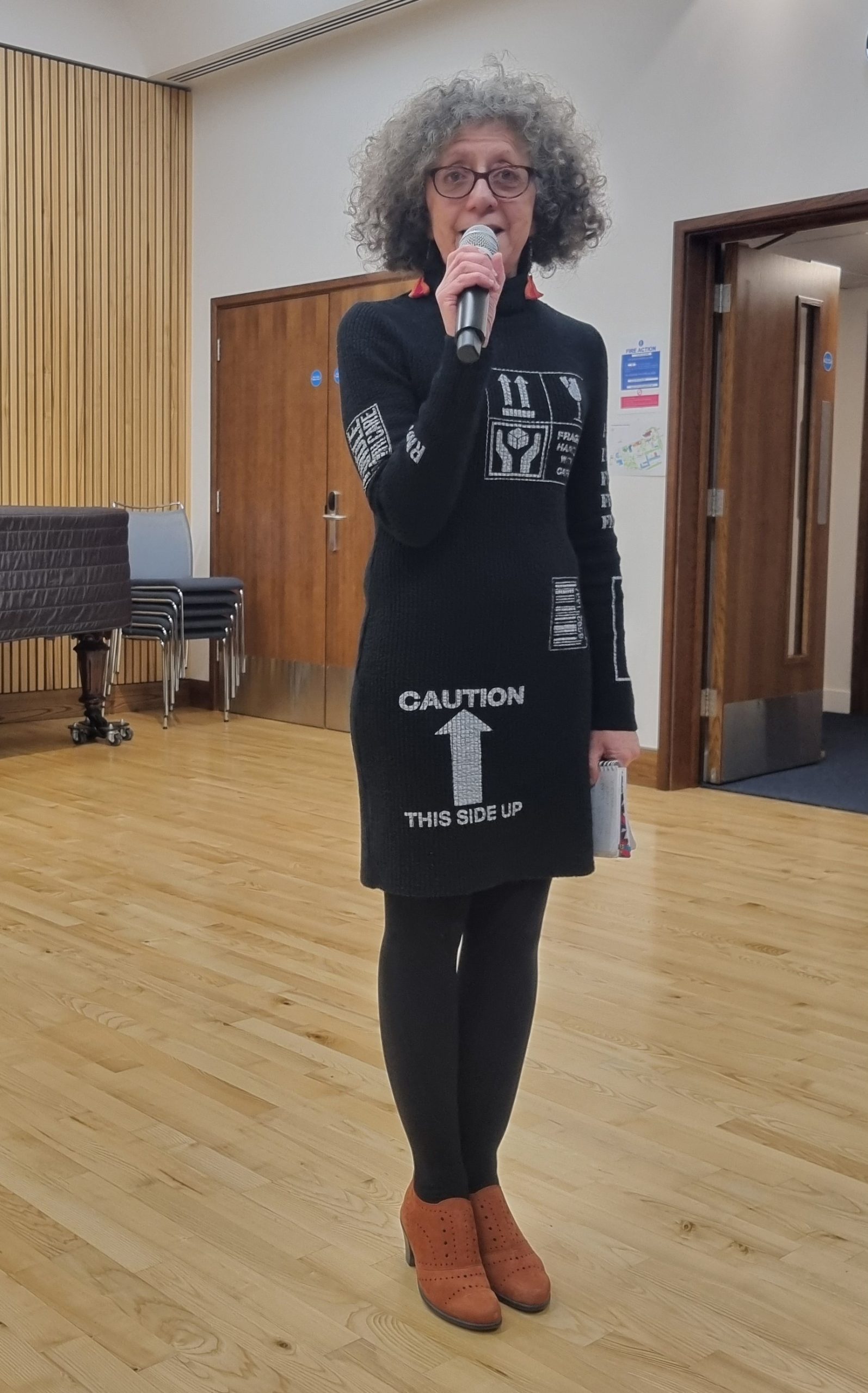
Cradle of Fire’s lead artist Diana Scarborough at Homerton College for the project’s multimedia event and film screening © Emma Boden
Fuelled by the multi-faceted subject matter and our eclectic audience, the Q&A session with Diana at the close of the event was enlivened by some probing questions and interesting answers. All that was left to do was to head to the Griffin Bar to unwind and mingle.
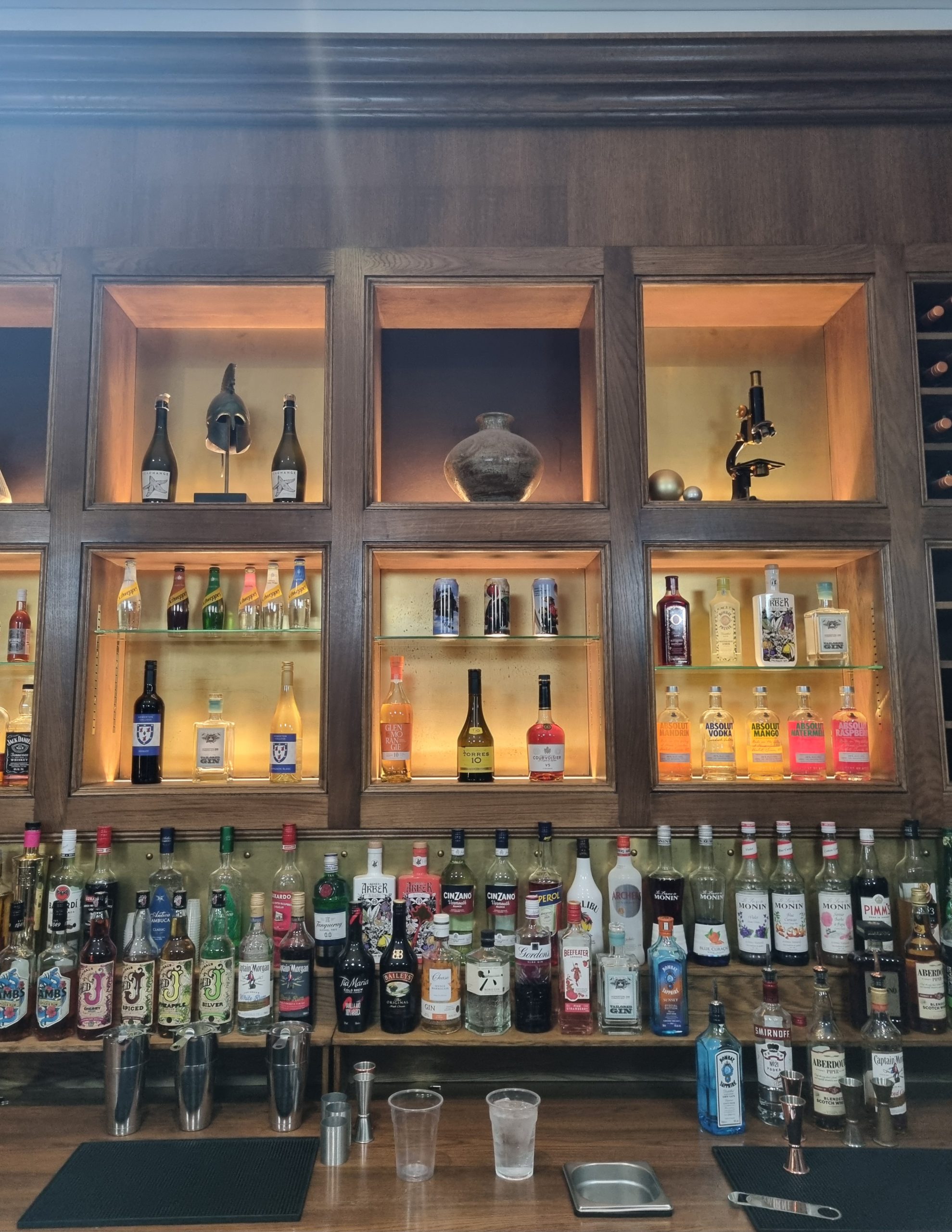
Drinks display in the Griffin Bar at Homerton College, Cambridge © Emma Boden 2024
Blog by Emma Boden

Cradle of Fire film still showing layering, also featuring Henrich Zelinka, the Barton Blacksmith, who creates original hand forged ironwork © Diana Scarborough Screenshot 2024-11-19 at 18.07.24
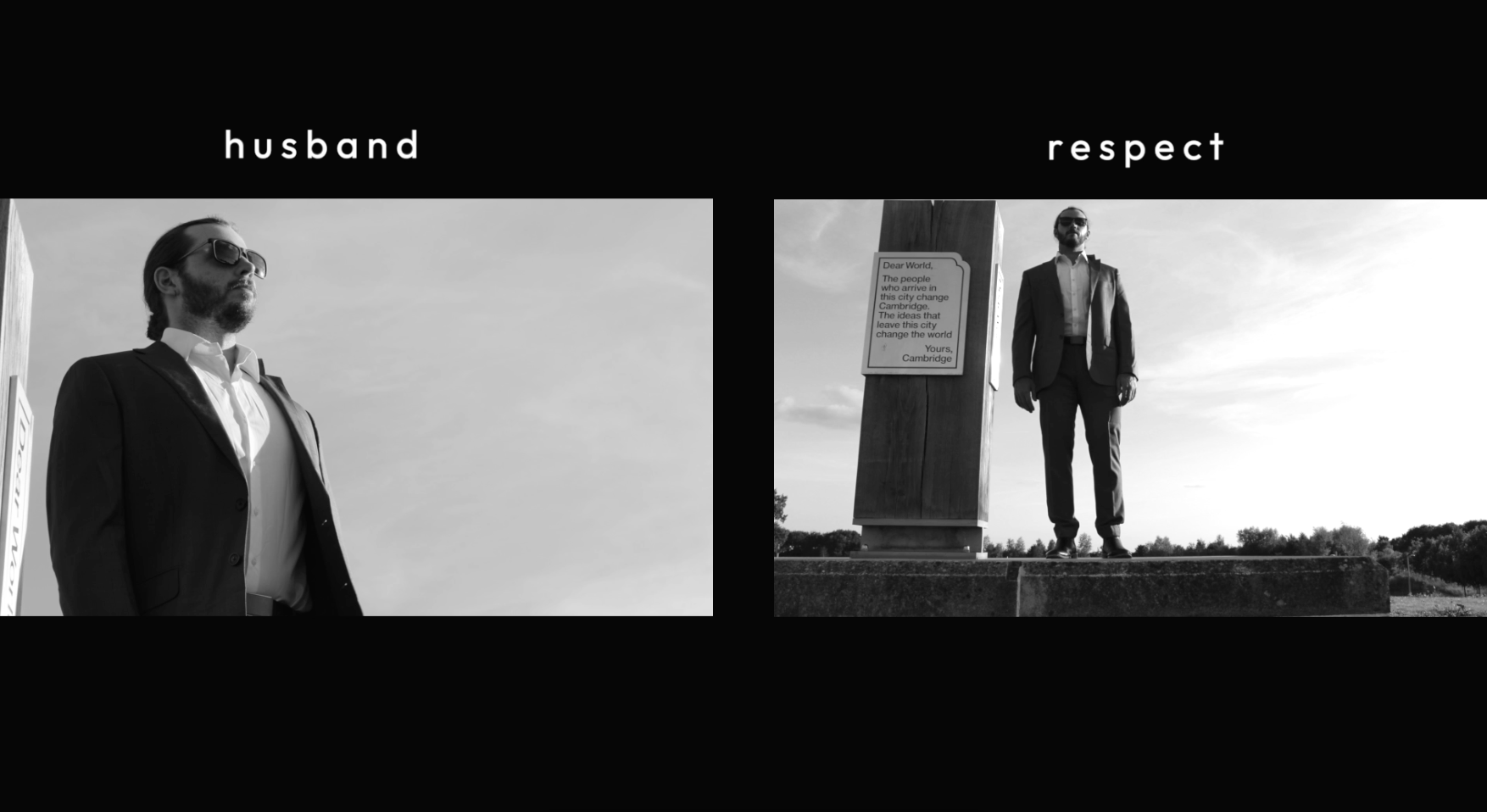
Cradle of Fire film double screen featuring David Cantwell as Vulcan © Diana Scarborough Screenshot 2024-11-19 at 18.08.48
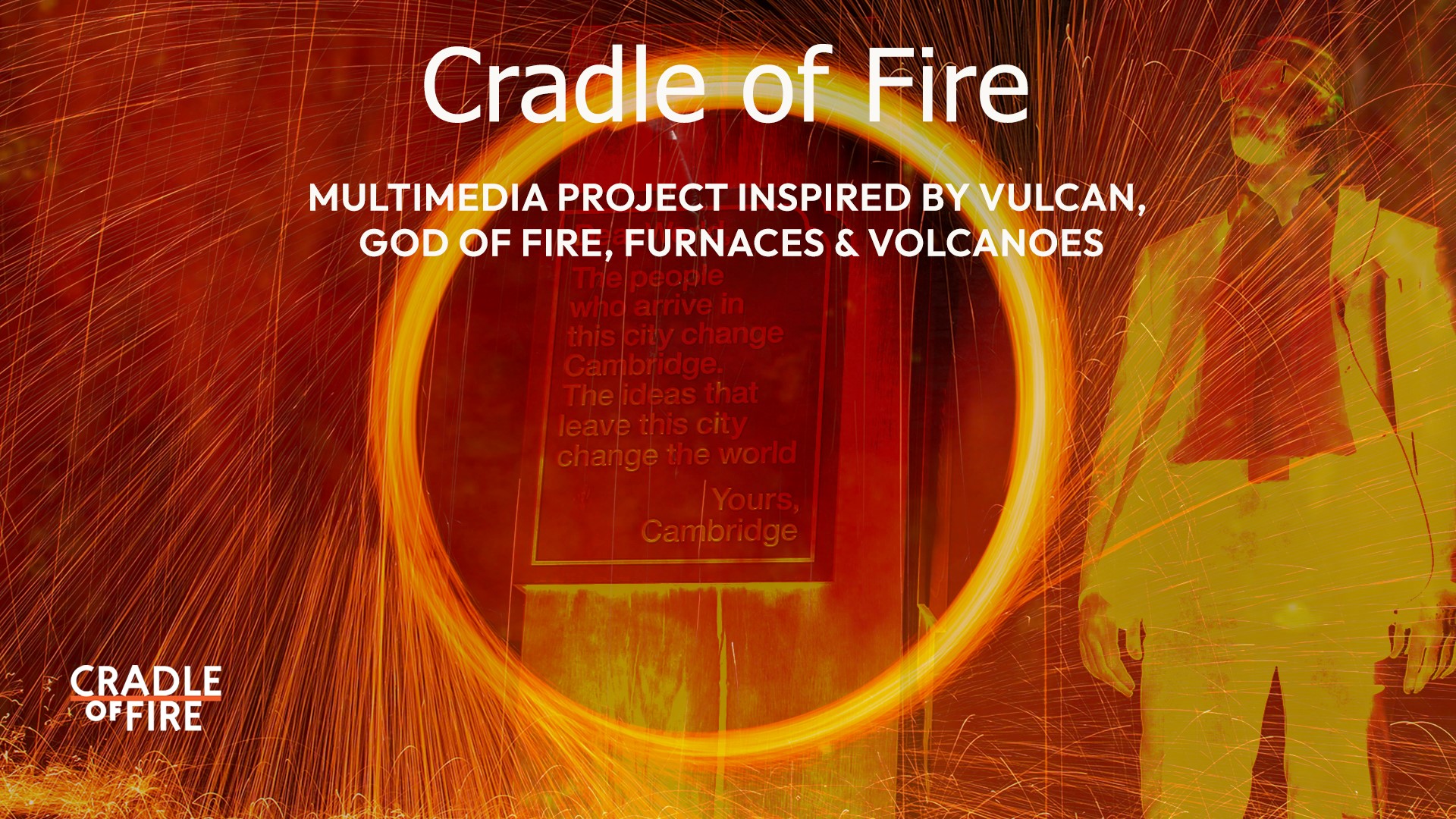
Cradle of Fire Multimedia Project Event Header for Cambridge, featuring Cambridge University’s ‘open letter to the world’ © Diana Scarborough

We’d love to hear from you as we develop the Cradle of Fire project. Please use the contact page to get in touch.
Cradle of Fire is a research and development project, supported by public funds from Arts Council England. We are also grateful for support from our partners and creative collaborators. Read more on the dedicated About pages.
Check our progress to date and future plans via the timeline